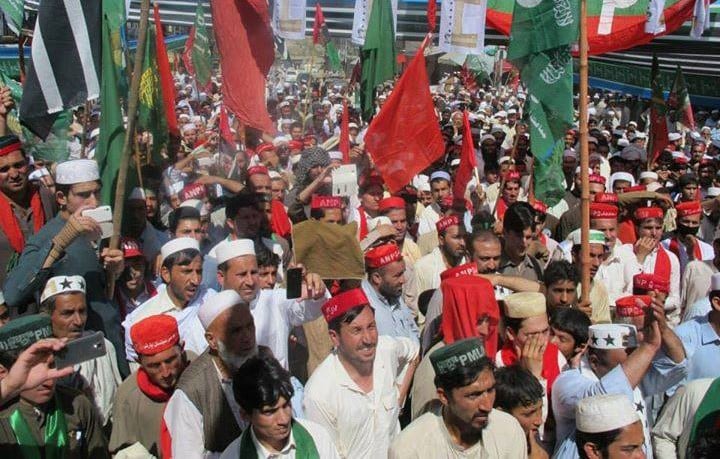
Even if the current consultations don’t lead to profound changes in Fata’s status, this would set the stage for making changes in keeping with tribals’ aspirations

The debate about the future status of the Federally Administered Tribal Areas (Fata) has never been so intense and serious.
This has given rise to hope that the issue has finally attracted the attention that it deserved. Even if the current consultations don’t lead to profound changes in the status of Fata, this would certainly set the stage for embarking on changes in keeping with the aspirations of its population and the security challenges in the region.
Of late, a new and forceful line of thinking has been adopted by tribal parliamentarians concerning their rights and future. This was reflected in a bill that was moved by them to seek the 22nd constitutional amendment to bring Fata into the national mainstream.
Around the same time, the military expressed its concern over the slow pace of the implementation of the National Action Plan (NAP) aimed at tackling extremism and terrorism. One matter of concern was the delay in undertaking reforms in Fata. This pushed the PML-N-led federal government into action and Prime Minister Nawaz Sharif quickly formed a five-member committee headed by his foreign affairs advisor, Sartaj Aziz, to determine whether Fata should be made a separate province or merged into Khyber Pakhtunkhwa (KP) by turning it into Provincially Administered Tribal Areas (Pata).
There was no mention of the third option of establishing an elected executive council for Fata that has been proposed by some of the tribal parliamentarians. It basically advocates maintaining the special status of Fata and empowering the elected representatives of the tribal people at the expense of the political agents who are presently calling the shots.
Other members of the committee include Minister for SAFRON Lt Gen (Retd) Abdul Qadir Baloch, KP Governor Sardar Mahtab Ahmad Khan, Prime Minister’s Advisor on National Security Lt Gen (Retd) Nasser Khan Janjua, and lawmaker and federal minister Zahid Hamid.
Read also: Ten political parties, eleven recommendations for Fata
An official from the Prime Minister House explained that Sartaj Aziz would be tasked with evaluating Fata’s historical position and status while retired general Nasser Janjua would present the military’s point of view in the committee. The official added that Governor Sardar Mahtab would provide the input of the Fata Secretariat to the committee while Zahid Hamid would look after the constitutional issues.
It was a neat allocation of different tasks to the committee members, though it doesn’t happen the way the official explained because any member can give suggestions beyond the job assigned to him. Also, the committee’s composition faced criticism at the outset as the tribal elders, elected representatives and Fata’s intelligentsia opined that there was nobody from Fata in the committee.
Moreover, there was generally skepticism toward the committee because so many committees and commissions for Fata reforms have been formed in the past that the inability of the successive governments to implement their recommendations is now taken for granted.
Aware of all past such efforts at introducing reforms in the seven tribal agencies and six Frontier Regions that collectively make up Fata, the newest reforms committee decided to review the reports of the previous committees and commissions and consult all stakeholders, including tribal lawmakers, elders, youngsters, intellectuals and experts.
The committee has met once and is now planning to meet the 19 tribal members of parliament in Islamabad on December 10. According to Shahjee Gul Afridi, the parliamentary leader of independent MPs from Fata, either all 19 of them would become co-opted members of the Fata Reforms Committee or their two chosen representatives would sit regularly on the committee to give their input on issues affecting the tribal people.
The timing of the formation of the Fata Reforms Committee was interesting not only due to the military’s public statement criticising the delay in undertaking reforms in Fata, but also the decision by the tribal parliamentarians to put up their own candidate, Dr Ghazi Gulab Jamal, to contest for the office of National Assembly Speaker against PML-N’s Sardar Ayaz Sadiq.
Media reports said Dr Ghazi Gulab Jamal, the MNA from Orakzai Agency, was persuaded to withdraw in favour of Sardar Ayaz Sadiq once the government gave an assurance to take into consideration the reservations of the tribal parliamentarians in context of the Fata reforms. Tribal MNAs and Senators subsequently described it as their victory that the government had for the first time agreed to give serious consideration to their views while deciding the future status of Fata.
The build-up to this move was also interesting as an all-parties conference called by the Jamaat-i-Islami in Islamabad unanimously backed the proposed 22nd constitutional amendment, seeking full rights of citizenship to the tribal people and extending the jurisdiction of the superior courts to Fata.
Another Islamic party, JUI-F, responded by holding meetings in Peshawar and elsewhere in KP to warn that any decision concerning the future of Fata without consulting the tribal people won’t be acceptable. An alliance of all the political parties in Bajaur asked the government to support the 22nd constitutional amendment bill tabled by tribal MPs, instead of setting up committees if it was sincere in undertaking reforms in Fata. The climax of this campaign was the Haqooq-e-Fata rally in Islamabad on November 16 to demand rights for the people of Fata.
Though the debate about Fata’s future status is continuing, things seem to have been put on hold in Islamabad as the tribal parliamentarians who moved the 22nd constitutional amendment bill in the parliament have decided not to push it and, instead, wait for the recommendations of the Sartaj Aziz-led Fata Reforms Committee. One would have to see if this wait would be worthwhile or the latest committee tasked with proposing reforms in Fata would end up making recommendations that are cosmetic and even then take long to be implemented.